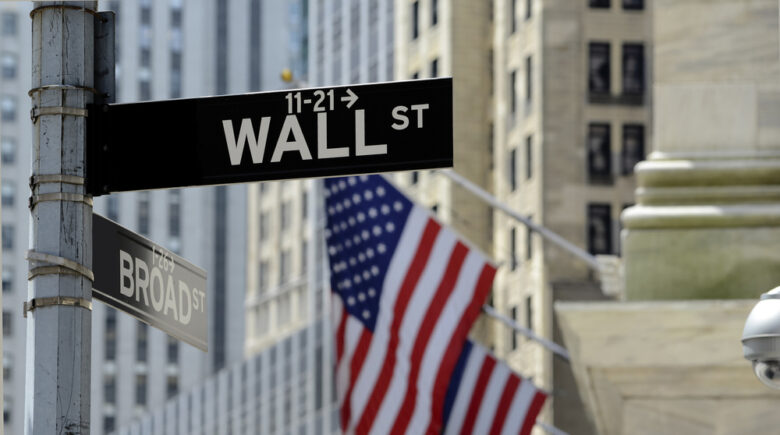Its a well known fact that the United States has had its reasonable portion of banking emergencies. Truth be told, there have been so many that keeping track can be hard! In this blog entry, we will investigate the historical backdrop of U.S. banking emergencies and their circumstances and end results. We will begin by taking a gander at the earliest known financial emergency in 1792 and move gradually up to the latest emergency in 2008. This data is significant for anybody who needs to figure out the present status of U.S. banking or who is just keen on more deeply studying our country’s monetary history.
1. The 1972 Banking Crises
The earliest known financial emergency in the United States happened in 1792. Around then, there was just a single national bank, which was situated in Philadelphia. This bank was liable for giving paper cash and managing the cash supply. Notwithstanding, it needed more gold or silver to back up all of the paper money it had given. Accordingly, individuals started to lose confidence in the bank and began pulling out their cash. This made a frenzy and made many banks fall flat. The emergency was at last settled when the public authority stepped in and gave monetary help to the banks.
2. The Civil War Era Banking Crises
The following significant financial emergency happened during the Civil War. Around then, there were two national banks: one in the North and one in the South. The Southern bank couldn’t print sufficient cash to stay aware of the interest, so it started giving government issued money (paper cash not supported by gold or silver). This prompted expansion and made individuals lose confidence in the financial framework. The emergency was in the end settled when the North won the conflict and assumed control over the Southern bank.
3. Banking Crises Amidst The Great Depression
The following significant financial emergency happened during the Great Depression. Around then, there was just a single national bank, the Federal Reserve. The Fed needed more gold or silver to back up all of its paper cash, so it started printing more cash. This prompted expansion and made individuals lose confidence in the financial framework. The emergency was in the end settled when the public authority stepped in and gave monetary help to the banks.
4.The 2008 Banking Crises
The latest financial emergency happened in 2008. Around then, there were numerous national banks all over the planet. The issue started when a portion of the banks began making hazardous advances that they couldn’t bear to take care of. This prompted a monetary emergency that impacted banks from one side of the planet to the other. The emergency was in the long run settled when the public authority stepped in and gave monetary help to the banks.
Examples Learnt From The Banking Crises
Throughout the span of history, we have seen innumerable financial emergencies, every one brought about by various variables. Notwithstanding, there are a few normal illustrations that rise up out of every one of these emergencies. As far as one might be concerned, we realize that in many cases national banks print a lot of cash and cause expansion, which can thus prompt a slump in the economy. We likewise realize that individuals will quite often lose confidence in the financial framework during seasons of emergency, subverting public trust in the monetary organizations answerable for keeping our economy moving along as expected. Lastly, we realize that administration intercession is much of the time important to determine these financial emergencies and keep them from making significantly more noteworthy harm our monetary framework. So, there is no question that each bank emergency has something significant to show us about how best to move toward future difficulties in our universe of money.
Effects Of The Banking Crises In America
Since the start of the downturn, a large number of Americans have lost their positions. And keeping in mind that the joblessness rate has gradually started to improve, many individuals are as yet battling to look for employment. One of the main supporters of this issue is the series of banking emergencies that have tormented the country over the course of the last 10 years. At the point when banks close down or diminish their activities, workers are many times the initial ones to be impacted. This can prompt a deficiency of pay and an expansion in monetary instability. Thus, as additional individuals battle to earn a living wage, they are more averse to burn through cash on labor and products, which can additionally hamper financial development. Hence, the financial emergencies have additionally prompted an abatement in loaning and an expansion in dispossessions. This has made it challenging for families to buy homes and has added to the general decrease in home estimations. Accordingly, the financial emergencies genuinely affect the American economy and keep on representing a critical danger to our recuperation.
Furthermore, loss of speculations is an enormous issue brought about by this monetary slump. Whenever banks are doing ineffectively, individuals will quite often pull out their assets from different areas that are performing better and put them into more secure spots like gold or bonds as they naturally suspect there’s less gamble engaged with these kinds of venture choices than stocks do
For instance: before 2008 numerous financial backers had cash contributed with public corporations however when the accident happened those equivalent offers turned out to be excessively hazardous so individuals began purchasing government bonds which offered ensured returns notwithstanding assuming that things moved along
Third, the financial emergencies have additionally prompted loss of trust in the financial area. This is on the grounds that when individuals see that banks are falling flat, they lose trust in the entire area and this can cause a cascading type of influence prompting more disappointments. At long last, the financial emergencies have likewise prompted an expansion in the expense of acquiring. This is on the grounds that when banks come up short, the expense of getting cash from different banks goes up since they will be seen as an unsafe speculation. Taking everything into account, the financial emergencies truly affect America and it is as yet feeling the impacts even today.
All in all, what’s the important point? The action item is that we should be cautious with our cash. We additionally need to recall that financial emergencies are a characteristic piece of the monetary cycle. They have been going on for quite a long time, and they will keep on occurring. It’s basically impossible to keep away from them totally. Yet, by monitoring them, we can ideally limit their impacts on our economy and our lives. Have you at any point encountered a financial emergency firsthand? Tell us in the remarks underneath.



